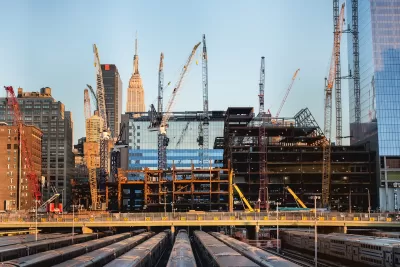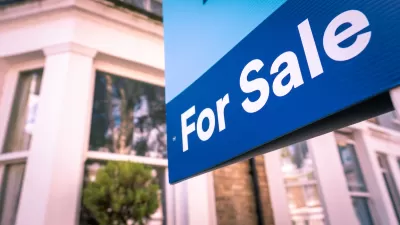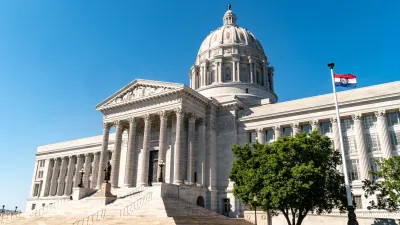Changes to tax incentives, fair housing laws, and housing assistance programs would quickly start impacting local efforts to stem the housing crisis.

In an interview with Curbed’s Kim Velsey, Matthew Murphy, executive director of New York University’s Furman Center, outlines how future federal policy could impact the housing crisis in New York City and around the country.
According to Murphy, “A lot of the housing policies we rely on today are either Republican-created or bipartisan. Housing vouchers are all about moving away from public housing and giving people choices.” Consequently, “The politics are actually in favor of not cutting Section 8.” However, Trump and Project 2025 authors have signaled the intent to tighten rules for federal housing programs to exclude households where non-citizens reside. The new administration could also cut funding to programs such as the Community Block Development Grant, which largely funds New York City’s code enforcement inspections.
For Murphy, the biggest potential impact will be changes to the tax code. “The last time they came up with opportunity zones that changed the way real estate could be invested in. There were also proposals to completely eliminate the low-income-housing-tax credit [which funds the construction and renovation of affordable rental housing].” Meanwhile, progress on fair housing could suffer if HUD stops making its resources available to enforce anti-discrimination laws.
And while a reduction in bureaucracy could be a good thing, Trump doesn’t appear poised to follow a small-government model. “It’s not like he’s embracing a libertarian vision of zoning, which is basically that we should abolish it and embrace market-based solutions,” Murphy says.
FULL STORY: ‘New York City Will Have to Defend a Lot of Programs We Rely On’

Planetizen Federal Action Tracker
A weekly monitor of how Trump’s orders and actions are impacting planners and planning in America.

Map: Where Senate Republicans Want to Sell Your Public Lands
For public land advocates, the Senate Republicans’ proposal to sell millions of acres of public land in the West is “the biggest fight of their careers.”

Restaurant Patios Were a Pandemic Win — Why Were They so Hard to Keep?
Social distancing requirements and changes in travel patterns prompted cities to pilot new uses for street and sidewalk space. Then it got complicated.

Platform Pilsner: Vancouver Transit Agency Releases... a Beer?
TransLink will receive a portion of every sale of the four-pack.

Toronto Weighs Cheaper Transit, Parking Hikes for Major Events
Special event rates would take effect during large festivals, sports games and concerts to ‘discourage driving, manage congestion and free up space for transit.”

Berlin to Consider Car-Free Zone Larger Than Manhattan
The area bound by the 22-mile Ringbahn would still allow 12 uses of a private automobile per year per person, and several other exemptions.
Urban Design for Planners 1: Software Tools
This six-course series explores essential urban design concepts using open source software and equips planners with the tools they need to participate fully in the urban design process.
Planning for Universal Design
Learn the tools for implementing Universal Design in planning regulations.
Heyer Gruel & Associates PA
JM Goldson LLC
Custer County Colorado
City of Camden Redevelopment Agency
City of Astoria
Transportation Research & Education Center (TREC) at Portland State University
Camden Redevelopment Agency
City of Claremont
Municipality of Princeton (NJ)





























